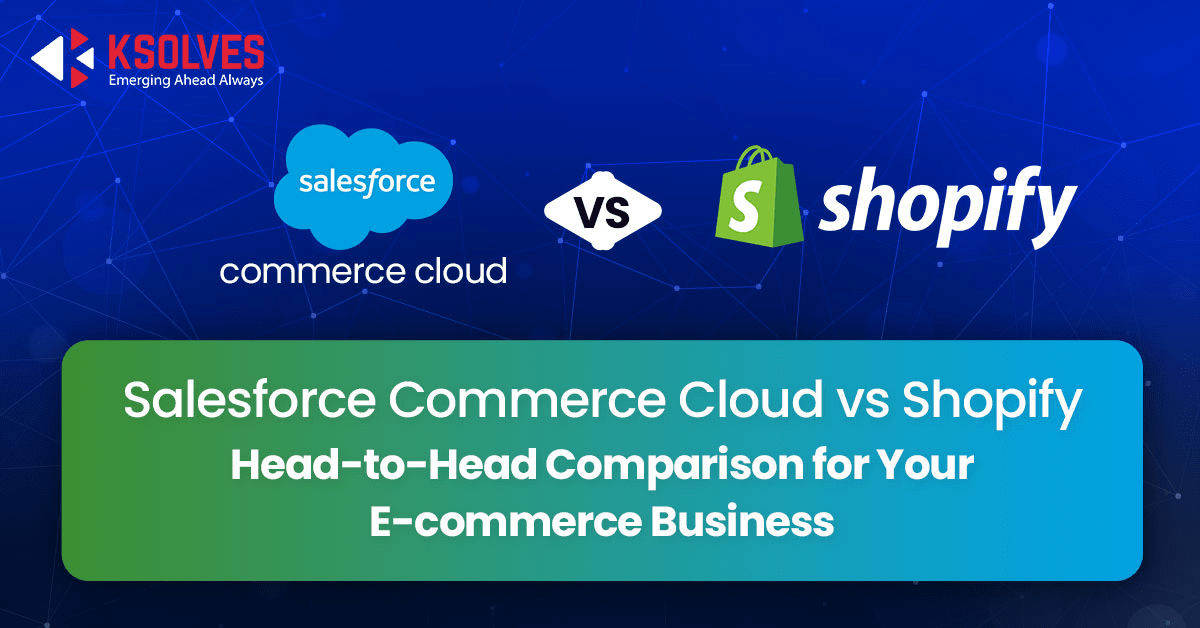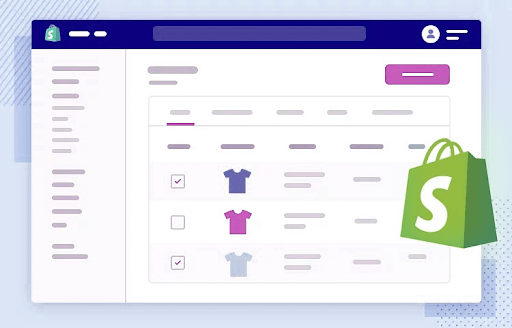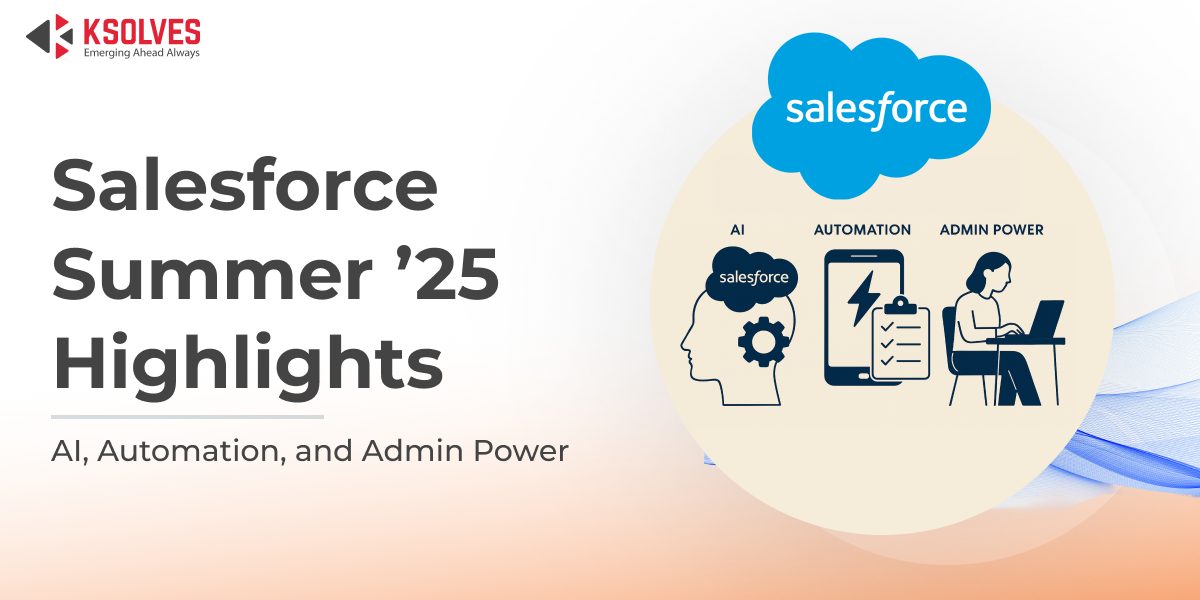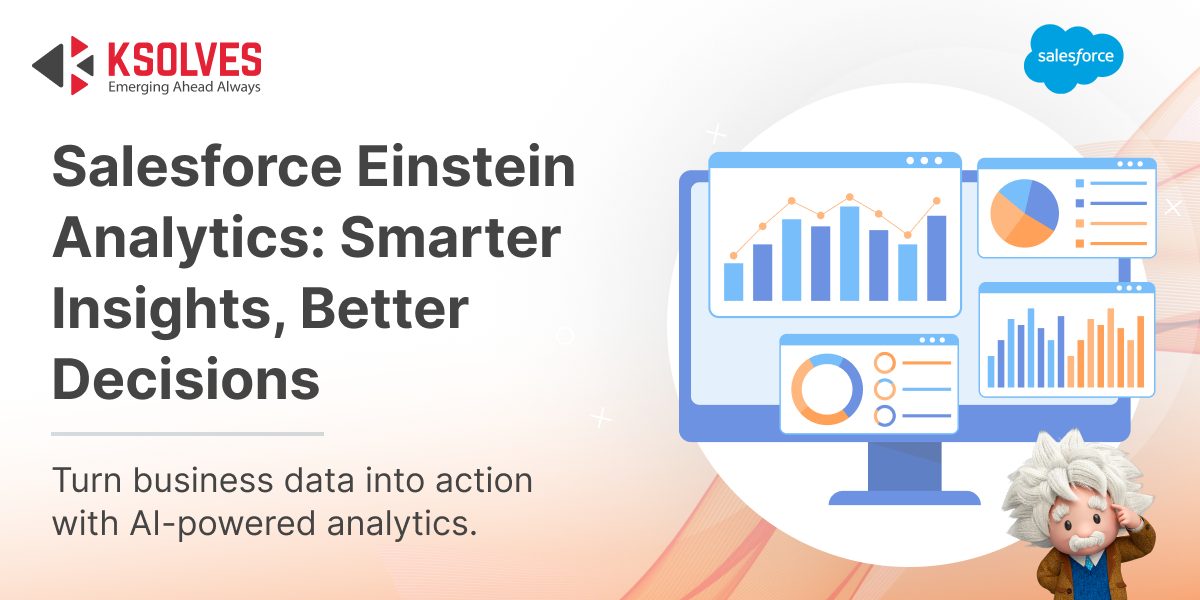Salesforce Commerce Cloud vs Shopify: A Head-to-Head Comparison for Your E-commerce Business
Salesforce
5 MIN READ
March 29, 2023
![]()

The digital age has revolutionized the way we do business, and e-commerce has taken center stage in this transformation. Online shopping has become the new norm, and businesses that don’t embrace this trend risk being left behind. But with so many e-commerce platforms to choose from, it can be overwhelming to pick the right one for your business. Salesforce Commerce Cloud and Shopify – two giants in the world of e-commerce, both platforms offer unique features and capabilities that can take your online business to the next level.
In this blog, we will discuss Salesforce Commerce Cloud vs. Shopify and help you make an informed decision on which platform is the best fit for your e-commerce needs.
Salesforce Commerce Cloud
Salesforce Commerce Cloud was previously known as Demandware, is a cloud-based e-commerce platform that is designed for enterprise-level businesses. It offers a wide range of features and customization options like order management, eCommerce, mobile-first POS, and predictive intelligence to cater to the specific needs of large businesses.
One of the key strengths of Salesforce Commerce Cloud is its integration with other Salesforce products. This allows businesses to streamline their sales, marketing, and customer service processes and gain a 360-degree view of their customers. The Salesforce Commerce Cloud’s experience-management tools help in managing the products, promotions, pricing, and content.
Another added advantage of Salesforce Commerce Cloud is its AI capabilities, which can help businesses personalize their customer experiences and improve their marketing efforts.
Salesforce Commerce Cloud Interface
Shopify
Shopify is a subscription-based e-commerce platform that allows you to easily create and manage your online store. It is a SaaS (Software as a Service) platform that provides businesses with everything they need to set up an online store, including web hosting, payment processing, and a range of customizable templates.
Shopify is designed for small to medium-sized businesses that are looking for an affordable and easy-to-use e-commerce platform. One of the key advantages of Shopify is its user-friendly interface which makes it an attractive option for businesses that are new to e-commerce.
It is a multi-tenant platform that does not require bandwidth, transaction costs, or rack space. Moreover, Shopify Plus enables merchants to sell their goods on all major online stores and social media networks. Shopify offers a range of pricing plans, from a basic plan for new businesses to an advanced plan for businesses with high sales volumes. This allows businesses to choose a plan that fits within their budget and scales as their business grows.
Shopify Interface
Comparison of Salesforce Commerce Cloud and Shopify
Let’s compare Salesforce Commerce Cloud and Shopify based on their pros and cons:
Features and Customization Options
Salesforce Commerce Cloud is a highly customizable platform that is designed for enterprise-level businesses. It offers a wide range of features, including product management tools, mobile optimization, and AI capabilities, it provides a wide range of features. Additionally, it enables businesses to customize their storefront and back-end procedures to suit their unique requirements.
Shopify, on the other hand, offers a range of customizable templates and apps that allow businesses to set up an online store quickly and easily. While it may not offer the same level of customization as Salesforce Commerce Cloud, it provides businesses with all the essential features they need to get started, including web hosting, payment processing, and shipping and tax calculators.
Any changes you make to Shopify will take effect right away in the system,which means if a small error happens, it will be posted on the system right away. But Salesforce on the other hand enforces multiple cross checking.
Integration with Other Tools
One of the key strengths of Salesforce Commerce Cloud is its integration with other Salesforce products. This allows businesses to streamline their sales, marketing, and customer service processes and gain a 360-degree view of their customers. It also allows businesses to leverage Salesforce’s AI capabilities, which can help personalize customer experiences and improve marketing efforts. Because of the Salesforce Commerce Cloud’s partnership with Stripe, you can integrate payment capability from the Commerce Cloud to your website without writing any code.
Shopify also offers integration with a range of third-party apps, including social media platforms, email marketing tools, and accounting software. This allows businesses to extend the functionality of their store and customize it to meet their specific needs. Shopify’s market for plugins is larger than Salesforce Commerce Cloud. However one of the factors contributing to the website’s slowdown is these plugins. Despite this, it may be integrated with a wide range of company software and systems, including QuickBooks, Zapier, MailChimp, and many others.
Pricing
Salesforce Commerce Cloud is a high-end platform that is designed for enterprise-level businesses. As a result, it comes with a higher price tag compared to Shopify. Pricing for Salesforce Commerce Cloud is based on a number of factors, including the number of storefronts, the number of products, and the level of customization required.
Shopify, on the other hand, offers a range of pricing plans to fit different budgets and needs. The basic plan starts at $29 per month, while the advanced plan is priced at $299 per month. In addition to the monthly subscription fee, Shopify also charges a transaction fee on each sale made through the platform.
Customer Support
One of the critical areas where Salesforce Commerce Cloud has an edge over Shopify is in the area of customer support. As an enterprise-level e-commerce platform, Salesforce Commerce Cloud provides its users with access to 24/7 support, dedicated account manager, round-the-clock support, and a community of experts. This ensures that businesses have the assistance they need to maintain their store’s seamless operation and address any challenges that may arise.
The level of support Salesforce provides is not available on Shopify, which offers more limited support options. Still, Shopify provides some support options, including email, phone, and live chat support. In addition, Shopify offers an extensive knowledge base and community forums where businesses can find answers to their questions and connect with other users.
Scalability
Salesforce Commerce Cloud and Shopify are both scalable ecommerce platforms, but Salesforce Commerce Cloud has the upper hand when it comes to scalability. Its great level of flexibility and customizability as an enterprise-level platform makes it a viable option for bigger companies with complex demands. The platform can handle high levels of traffic and transaction volume, and it can integrate with other Salesforce products to provide a seamless experience for customers and businesses alike.
On the other hand, Shopify is a more affordable option that is better suited for smaller businesses. While it can be scalable to a certain extent, it may not be as flexible or customizable as Salesforce Commerce Cloud. For businesses that want to expand quickly and need more specialized solutions to meet their unique demands, this may be a drawback.
| Features | Salesforce Commerce Cloud | Shopify |
| Pricing model | Flexible pricing based on business size and features required. | Subscription-based pricing with plans ranging from $29/month to $299/month. |
| Scalability | Highly scalable and suitable for larger enterprises. | Scalable but better suited for small to medium-sized businesses. |
| Features and Capabilities | Offers a wider range of features and capabilities, including marketing automation, analytics, and AI capabilities. | Offers a straightforward and easy-to-use interface with a focus on customization. |
| Integration | Integration with other Salesforce products is a significant advantage for businesses already using other Salesforce products. | Several third-party integrations are also available. Offers several integrations with third-party apps and services. |
| Support | Offers more personalized support through a dedicated account manager. | Offers excellent customer support through phone, email, and live chat. |
Choosing the Right E-commerce Platform for Your Business
When it comes to selecting an e-commerce platform for your business, there are several factors to consider. Here are some key considerations when deciding between Salesforce Commerce Cloud and Shopify:
Business size and growth potential
- Salesforce Commerce Cloud can be the ideal option for you if your company has complex needs and high potential for expansion.
- Shopify can be a more cost-effective and practical choice if your company is smaller and has fewer needs.
Budget
- Salesforce Commerce Cloud is a more expensive platform than Shopify, so it may not be the best choice for businesses with limited budgets.
- Shopify offers affordable pricing plans that can suit the needs of smaller businesses.
Customization and flexibility
- Salesforce Commerce Cloud offers a high degree of customization and flexibility, making it a good choice for businesses with specific needs.
- Although Shopify has fewer customization choices than other platforms, it is still easy to use and quick to set up.
Advanced features
- Salesforce Commerce Cloud offers advanced features such as AI capabilities and advanced analytics and reporting tools.
- Shopify offers essential e-commerce features as well as a variety of add-ons and apps that may be used to expand its capability.
Ultimately, the choice between Salesforce Commerce Cloud and Shopify will depend on your specific business needs and priorities. While choosing, it is important to take into account aspects like your budget, potential for expansion, and needs for customization.
Final thoughts
In conclusion, choosing the right e-commerce platform is crucial for the success of your online business. Salesforce Commerce Cloud and Shopify are both popular options, each with their unique strengths and weaknesses.
Salesforce Commerce Cloud is an enterprise-level platform that offers advanced features, scalability, and comprehensive customer support. It is a top choice for large businesses with complex needs, high growth potential, and a budget to match.
On the other hand, Shopify is an affordable and easy-to-use platform that is well-suited for smaller businesses with more limited needs. It offers a range of basic e-commerce functionality and a variety of add-ons and apps to extend its capabilities.
Ultimately, the choice between these two platforms will depend on your specific business requirements, budget, and growth potential. It is important to carefully consider these factors and select the platform that best fits your needs. No matter which platform you choose, it is essential to continuously monitor your online store’s performance and optimize it for success.
Expert Salesforce Service by Ksolves
As a Salesforce Development Company and Salesforce Summit Partner, Ksolves has established itself as a trusted and reliable partner for businesses seeking Salesforce solutions. With a team of experienced and certified Salesforce experts, we specialize in providing Salesforce Custom Development services that are tailored to meet the unique needs of our clients.
Choosing Ksolves as your Salesforce partner means working with a team that is dedicated to delivering high-quality solutions that drive business success. We take the time to understand our clients’ specific requirements and provide customized solutions that are designed to meet their needs. Our expertise in Salesforce development and customization allows us to deliver innovative solutions that help businesses streamline their operations and improve their overall performance. Connect with us today to start a successful Salesforce journey.
![]()






AUTHOR
Salesforce
Md. Asad Khan, an expert Technical Project Manager at Ksolves, who is a certified Salesforce architect at Ksolves, brings 7+ years of experience. He specializes in FSL, B2B, Service & Sales Cloud, and Non-profit cloud, excelling in APEX, Aura Component Framework, Lightning Components, Triggers, Visualforce, and creating insightful dashboards and reports.
Share with